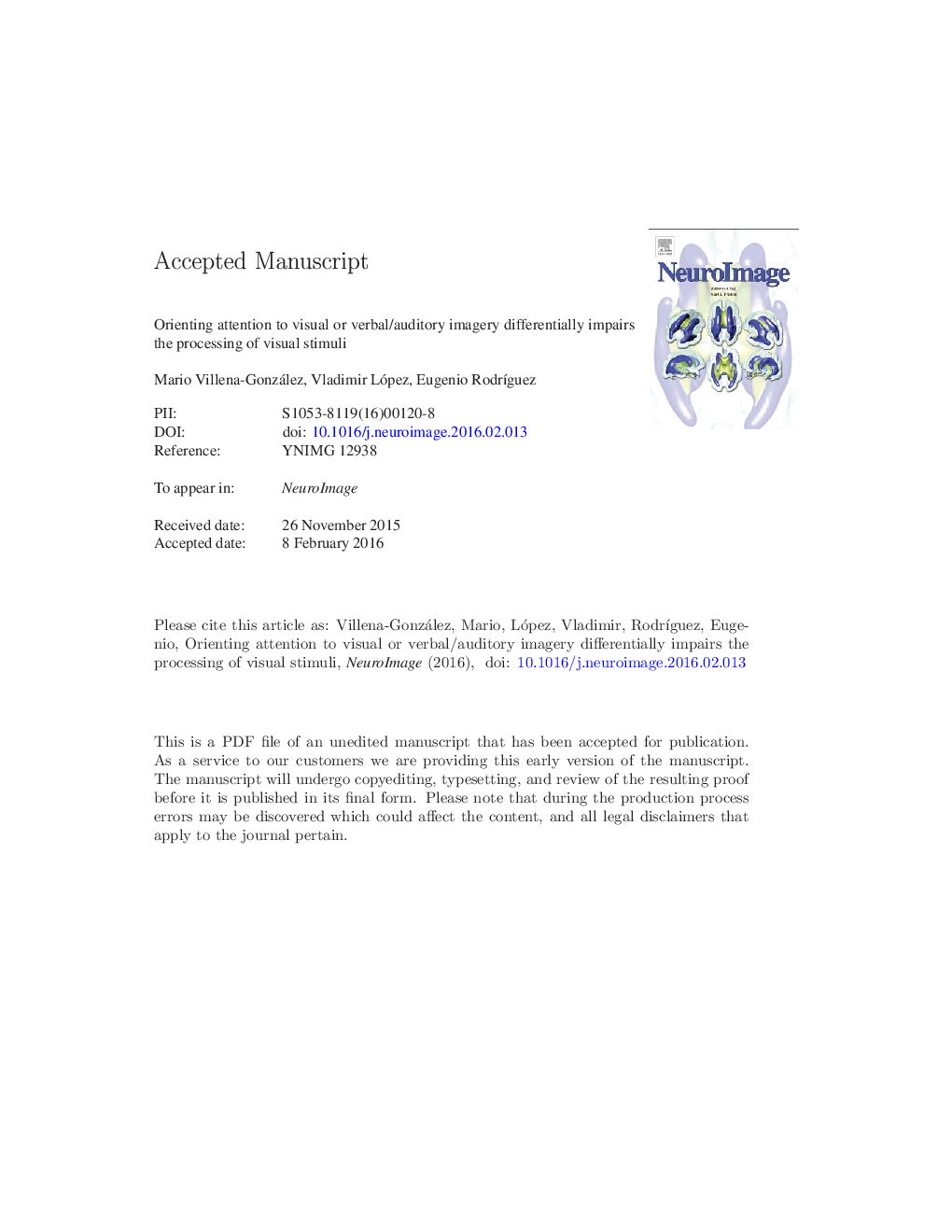| Article ID | Journal | Published Year | Pages | File Type |
|---|---|---|---|---|
| 6023692 | NeuroImage | 2016 | 39 Pages |
Abstract
When attention is oriented toward inner thoughts, as spontaneously occurs during mind wandering, the processing of external information is attenuated. However, the potential effects of thought's content regarding sensory attenuation are still unknown. The present study aims to assess if the representational format of thoughts, such as visual imagery or inner speech, might differentially affect the sensory processing of external stimuli. We recorded the brain activity of 20 participants (12 women) while they were exposed to a probe visual stimulus in three different conditions: executing a task on the visual probe (externally oriented attention), and two conditions involving inward-turned attention i.e. generating inner speech and performing visual imagery. Event-related potentials results showed that the P1 amplitude, related with sensory response, was significantly attenuated during both task involving inward attention compared with external task. When both representational formats were compared, the visual imagery condition showed stronger attenuation in sensory processing than inner speech condition. Alpha power in visual areas was measured as an index of cortical inhibition. Larger alpha amplitude was found when participants engaged in an internal thought contrasted with the external task, with visual imagery showing even more alpha power than inner speech condition. Our results show, for the first time to our knowledge, that visual attentional processing to external stimuli during self-generated thoughts is differentially affected by the representational format of the ongoing train of thoughts.
Related Topics
Life Sciences
Neuroscience
Cognitive Neuroscience
Authors
Mario Villena-González, Vladimir López, Eugenio RodrÃguez,
